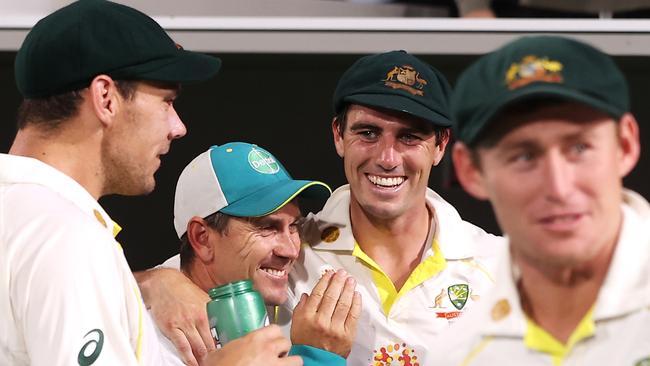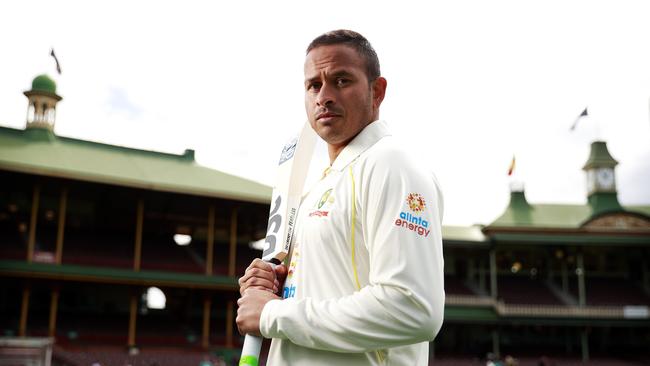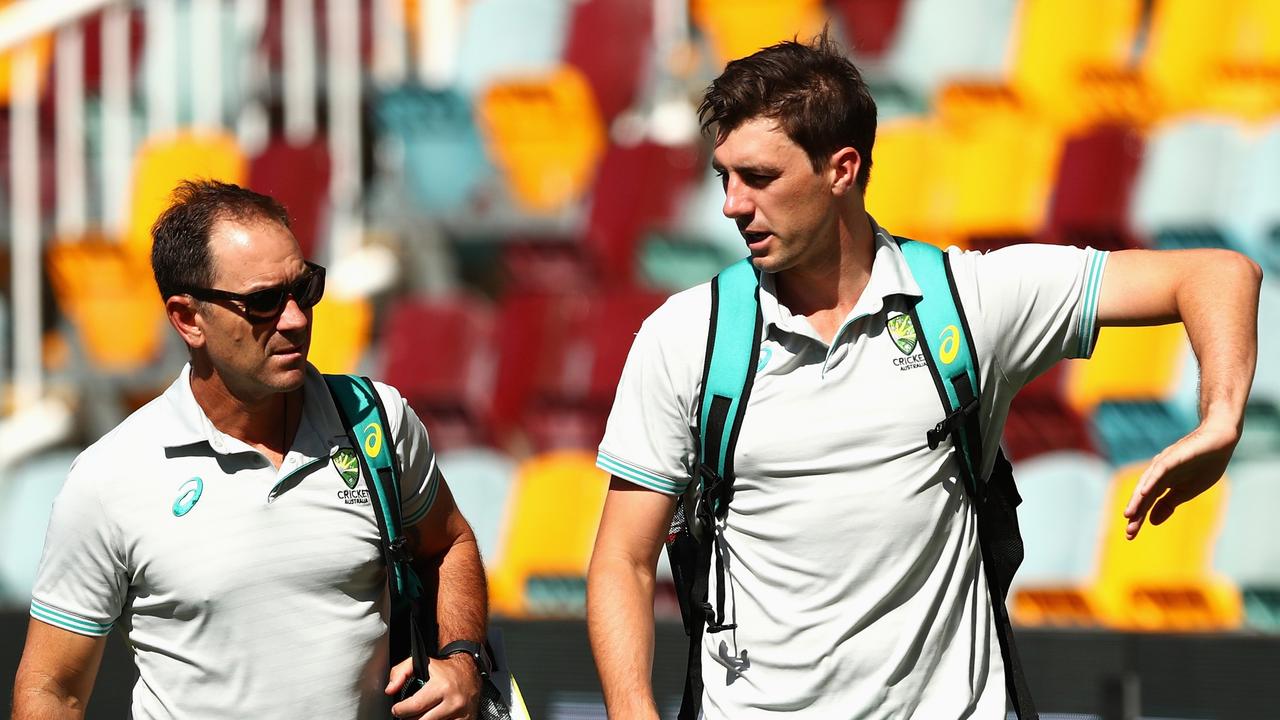Uncivil war is shredding the reputation of Australia’s Test team
The ugly fallout between Justin Langer and his players is turning cricket’s fan base hostile and one batsman may have been the key to resolving this feud.

Cricket
Don't miss out on the headlines from Cricket. Followed categories will be added to My News.
Usman Khawaja vanished from Test cricket just when Australia needed him most.
Not his batting. His voice.
Khawaja would have been the only player capable of short-circuiting the vicious feud between Australian coach Justin Langer and his players which has reached volcanic levels after Langer’s interview with CODE Sports where he calls out dressing room “cowards’’ who allegedly backstabbed him.
In The Test documentary which featured the 2019 Ashes tour, straight-taking Khawaja spoke up at a team meeting telling Langer players were “walking on eggshells’’ around him.
Not long after that Khawaja straightened up the argument in the other direction when he strongly criticised the players for bagging Langer behind his back.
Sadly, before his current resurgence, Khawaja drifted out of the Test team for two years in a period where Australia desperately needed a strong voice brave enough to call out faults on both sides of a complex argument.

Langer’s career went the same way as so many coaches who were raised in a flint hard era and struggled to adjust to a softer one when they took up the clipboard.
Both Langer and the players must take their share of the blame for the fallout, the players for being too timid about their grievances and Langer for not reading the signs that he was falling out of favour.
Langer does not believe he lost the dressing room. That may be the truth as he sees it but it is not the reality of the situation.
Losing a dressing room does not mean losing all 11 players. Marnus Labuschagne, for example, has no published objection to Langer and occasionally speaks up for him.
But Langer still lost the room. Maybe not everyone but many of them and certainly most of the bowlers.
This is significant because, unlike other eras when batsmen were kings and bowlers the workhorses of cricket, the bowlers are the powerbrokers in the Australian side and generally get what they want.
Langer felt his honestly was mistaken for intensity but the coach’s intensity was never an issue with the players. Volatility was the word.
Players found the ups and downs unsettling. The demise of Langer only strengthens the theory that cricket coaches who go the long journey after normally the po faced likes of Trevor Bayliss and John Buchanan who keep their most extreme emotions well hidden.

The team and Langer are also at odds about several essential threads of the narrative.
Langer insists he had never enjoyed coaching more than in his final season last summer when Australia won the T20 World Cup and the Ashes.
The players privately insist that by that stage he was under orders to take a back seat and then assistant and now head coach Andrew McDonald was running the show.
The players will feel they have the stronger side of the argument in pushing for Langer’s exit – and they probably have – but that doesn’t mean they will win the debate.
Far from it. Of the first 130 comments made on News Corp websites below the story of Langer’s outburst about 90 per cent of them are criticising the team rather than Langer.
Some of the arguments about “Woke Warriors’’ are left field not directly relevant but it’s a worrying sign that the popularity of the team is under siege.






